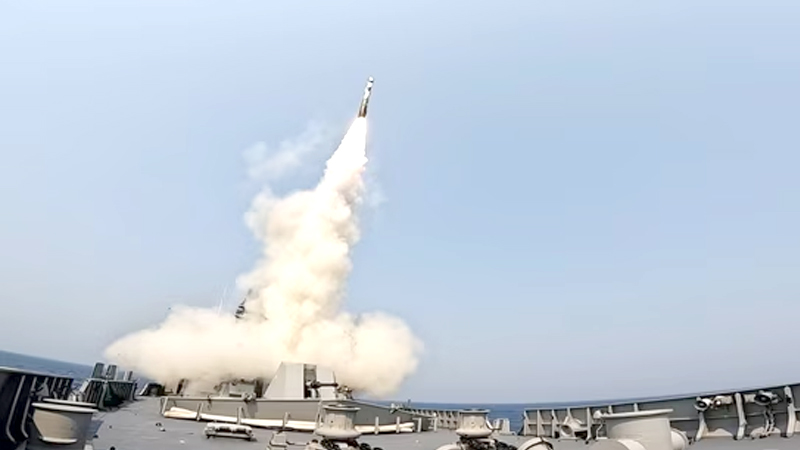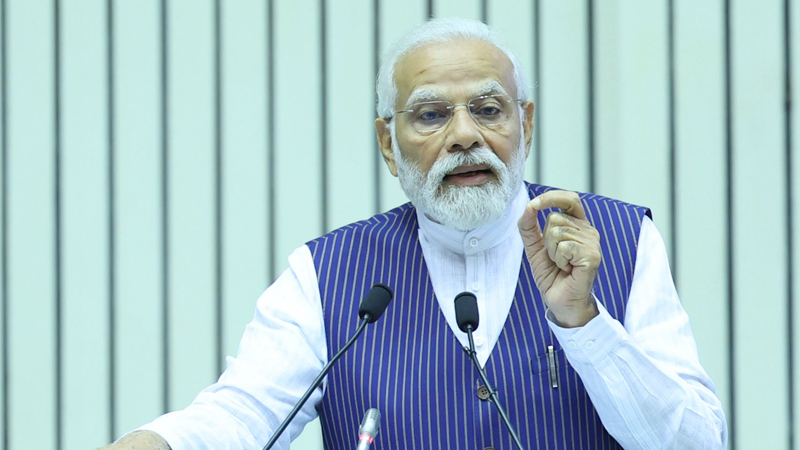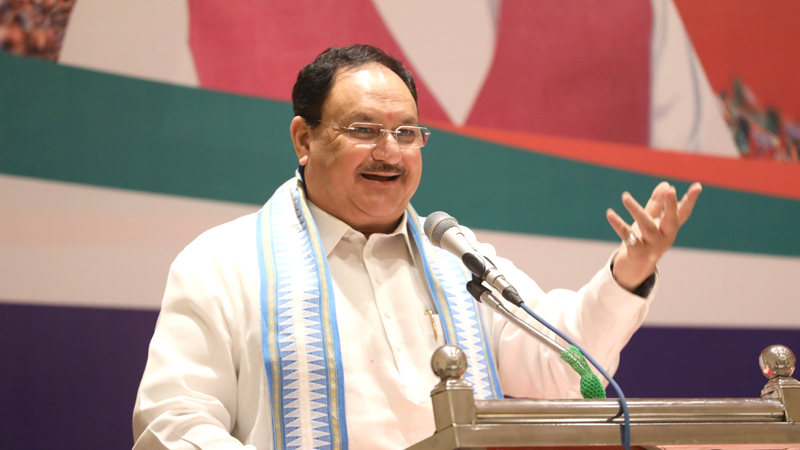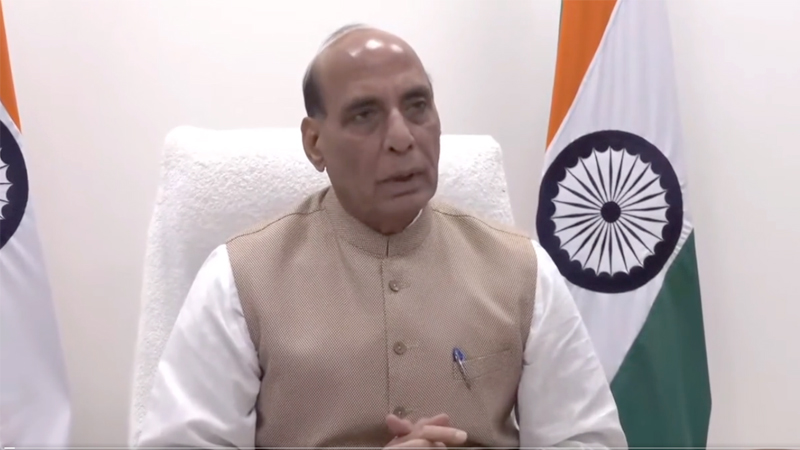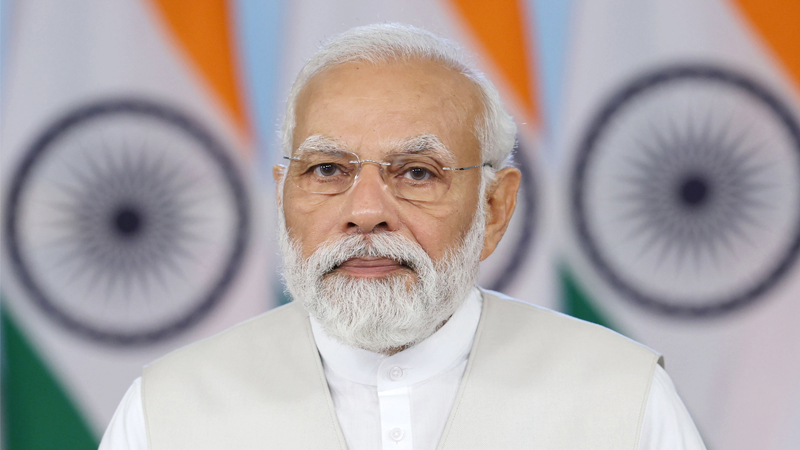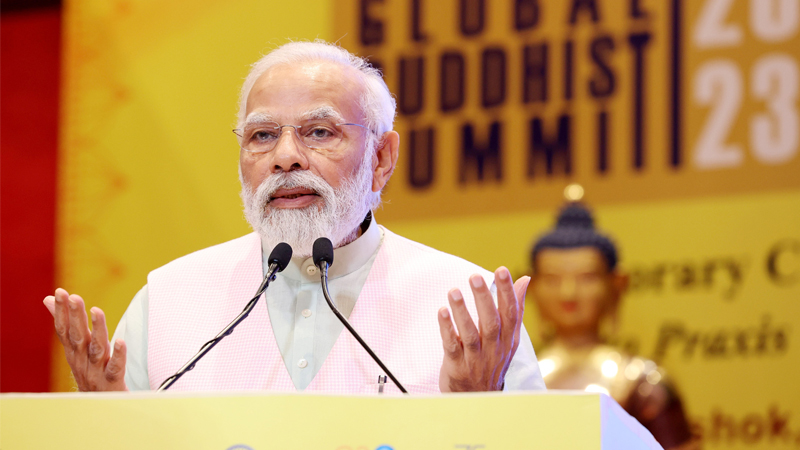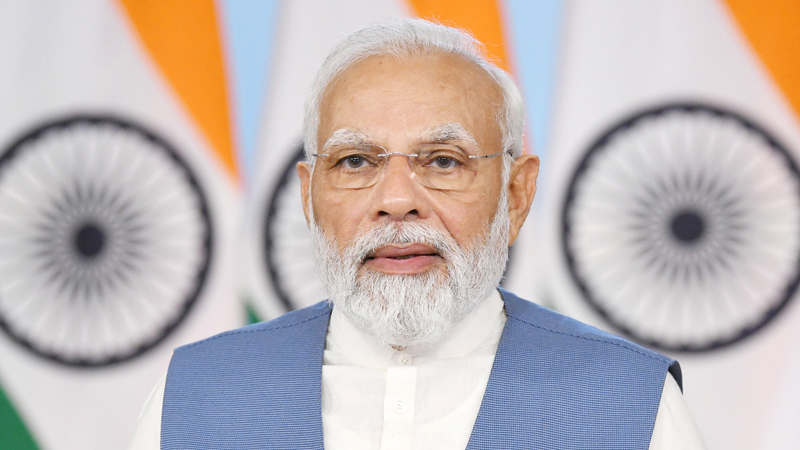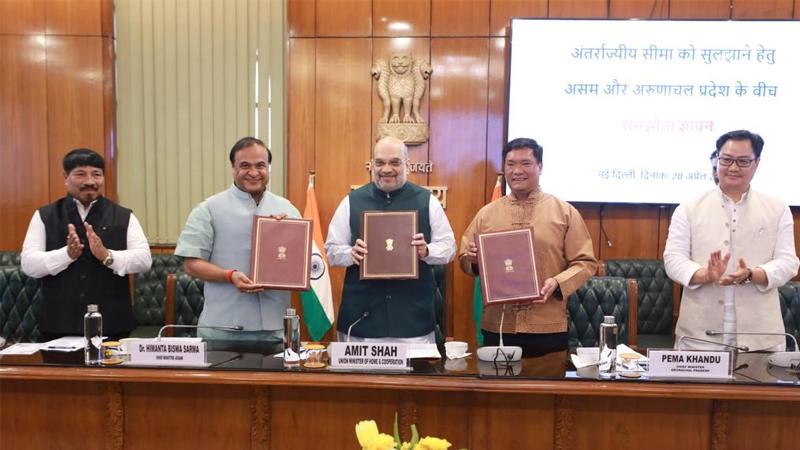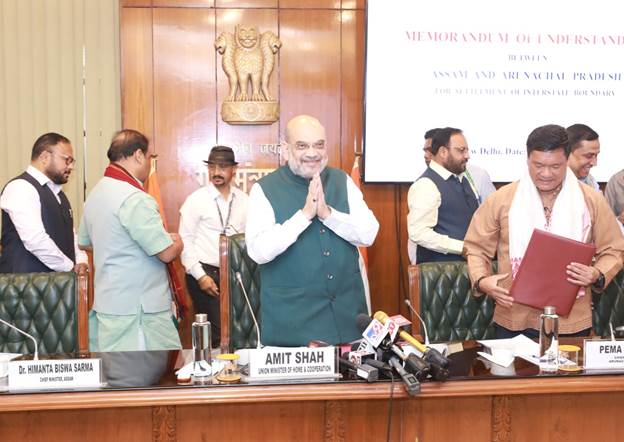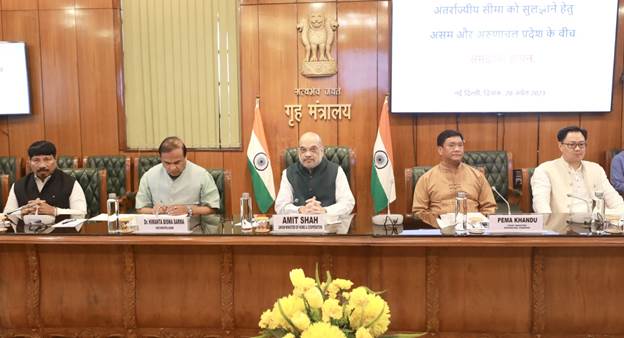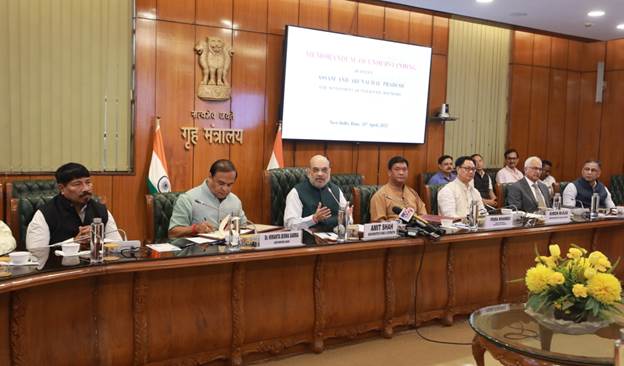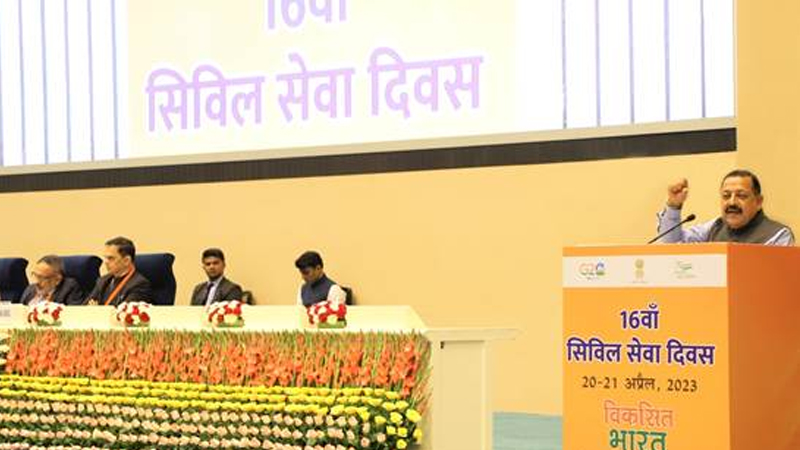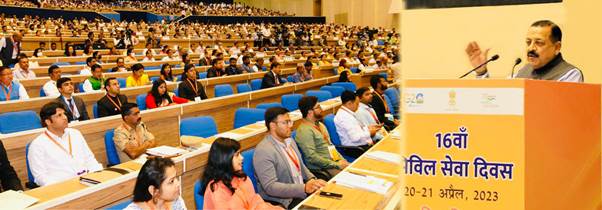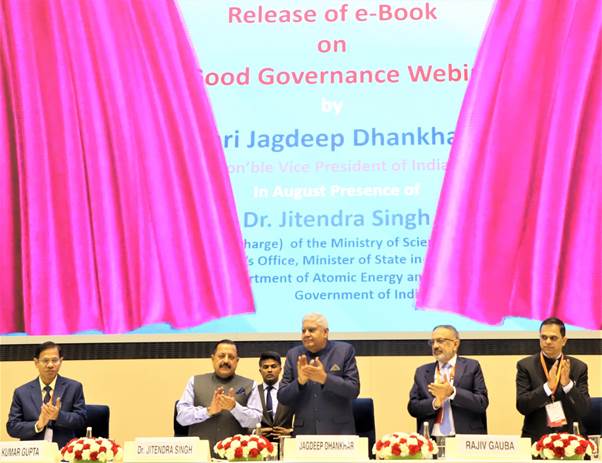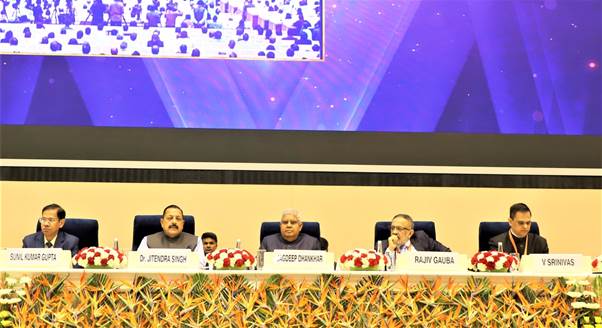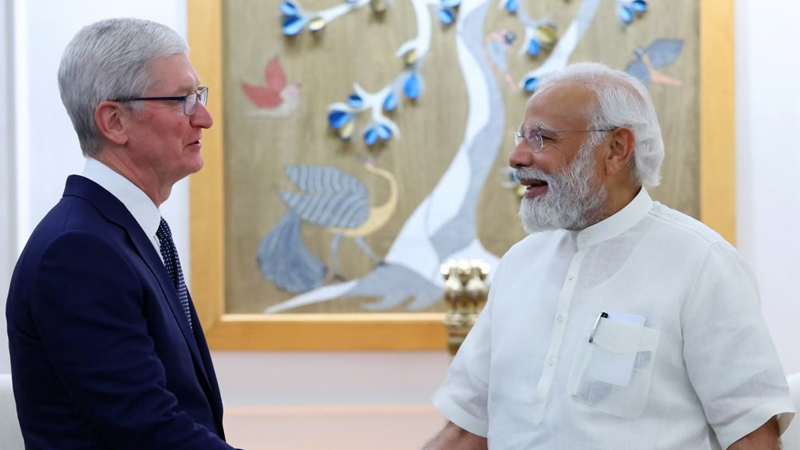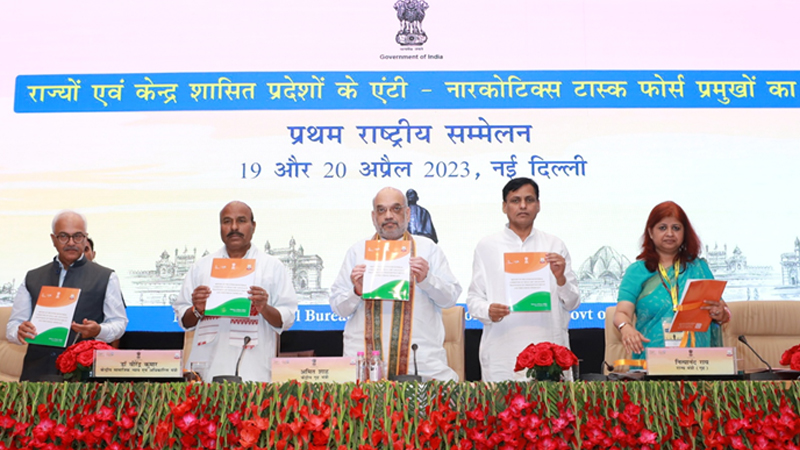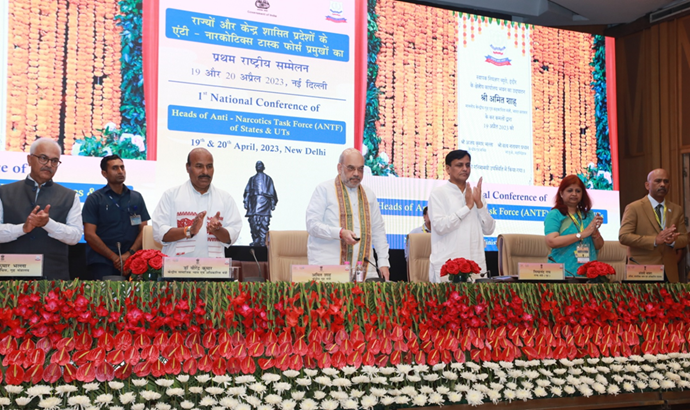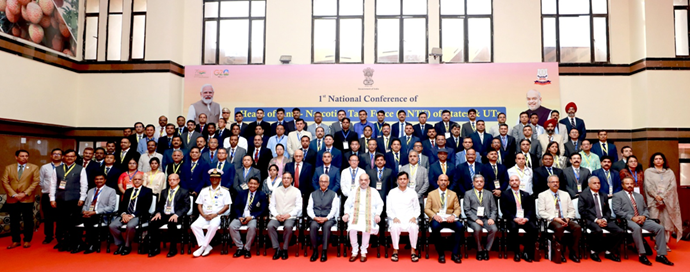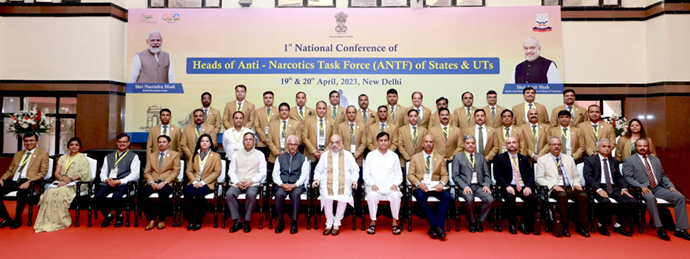The Prime Minister, Shri Narendra Modi addressed Civil Servants on the occasion of 16th Civil Services Day, 2023 at Vigyan Bhawan in New Delhi today. The Prime Minister also conferred the Prime Minister’s Awards for Excellence in Public Administration and released the e-books ‘Viksit Bharat – Empowering Citizens & Reaching the last mile Volume I and II.
Addressing the gathering, the Prime Minister congratulated everyone on the occasion of Civil Services Day. The Prime Minister noted that the occasion of Civil Services Day this year becomes much more special as the nation has completed 75 years of its independence and is starting to move forward to achieve the goals and objectives of a developed India. He highlighted the contributions of those Civil Servants who joined the service 15-25 years ago and emphasized the role of young officers who will contribute towards nation-building in the next 25 years of Amrit Kaal. The Prime Minister expressed confidence that the young officers are extremely fortunate to serve the nation in this Amrit Kaal. “The responsibility to accomplish the dreams of every freedom fighter of the nation lies upon every shoulder”, the Prime Minister remarked as he pointed out the paucity of time but the abundance of potential and courage in the country.
The Prime Minister said that the country is prepared for take off due to the work done in the last 9 years. He said that different results are being obtained with the same bureaucracy and personnel. He acknowledged the role of Karamyogis in the growing profile of the country on the global stage, for the growing confidence of the poorest of the poor in ‘Sushasan’ and for a new momentum of development of the country. He mentioned India rising as the 5th largest economy in the world, taking strides in fintech as India is number one in digital transactions, one of the cheapest mobile data countries and the third largest startup ecosystem in the world. He remarked on transformative changes in the rural economy, railways, highways, port capacity augmentation and the number of airports. He said that the awards today reflect the contribution and sense of service of the Karmyogis.
Recalling his address from the ramparts of the Red Fort on 15th August last year when the Prime Minister invoked the ‘Paanch Pran’ namely the development of Viksit Bharat or developed India, breaking the slavery mentality, taking pride in India’s heritage, strengthening the unity and diversity of the country, and keeping one’s duties before anything else, the Prime Minister underlined that the energy emanating from these five resolves will take the nation to its deserved place in the world.
Dwelling on the theme of this year’s Civil Service Day being based on the notion of Viksit Bharat, the Prime Minister said that the concept of Viksit Bharat is not limited to modern infrastructure. “It is important for Viksit Bharat that India’s government system supports the aspirations of every Indian and every government servant helps every citizen in realizing their dreams and the negativity that was associated with the system in the previous years, turns into positivity”, the Prime Minister added.
Throwing light on decades of experience after India’s independence, the Prime Minister stated the importance of last-mile delivery in the implementation of government schemes. He gave examples of results from policies of previous governments and mentioned that there were more than 4 crore fake gas connections, more than 4 crore fake ration cards, and support was provided to 1 crore fictitious women and children by the Ministry of Women and Child Development, fake scholarships were offered to approximately 30 lakh youths by Ministry of Minority Welfare, and lakhs of fake accounts were created under MGNREGA to transfer the benefits of workers who never existed. The Prime Minister highlighted that a corrupt ecosystem had emerged in the country under the pretext of these fake beneficiaries. He credited the civil servants for the transformation that has taken place in the system where roughly 3 lakh crore rupees have been saved from landing in the wrong hands, which is now being used for the welfare of the poor.
The Prime Minister emphasized that when time is limited, it becomes very critical to decide the direction and working style. “Today’s challenge is not about efficiency but in figuring out how to find and remove deficiencies”, he said. He recalled the time when in the garb of deficiency even the small aspect was attempted to be controlled. Today, he continued, the same deficiency is being turned into efficiency and removing obstacles in the system. “Earlier, the thinking was that the government will do everything, now the thinking is that the government will work for everyone”, said the Prime Minister highlighting the efficient use of time and resources to serve everyone. “Motto of the government is ‘Nation First-Citizen First’, today’s government’s priority is prioritizing the deprived”, the Prime Minister remarked, informing that the government is going up to Aspirational Districts and up to Aspirational blocks. He said today’s government is treating border villages as the first villages rather than the last villages. He said that for 100 percent saturation, we will need even more hard work and innovative solutions. He gave the example of departments asking for NoCs and information that is available somewhere in the system. He said for ease of living and ease of doing business we will have to find solutions for these.
Giving the example of PM Gatishakti Master Plan, the Prime Minister explained that all data layers related to any infrastructure project can be found on a single platform and stressed the need to utilize it to the maximum for better planning and execution in the social sector. He further added that it will greatly benefit in identifying the needs of citizens, tackling issues related to education that might arise in the future, and enhancing communication between departments, districts and blocks while also helping in the formulation of future strategies.
The Prime Minister stressed that the Amrit Kaal has brought immense challenges along with great opportunities. The Prime Minister elaborated that today’s aspirational citizens are not willing to wait for long to see changes in the systems and this will need our full effort, he said. Taking quick decisions and implementing them with speed has become all the more important as the expectations of the world from India have also risen dramatically. As the world is saying that India’s time has arrived, there is no time to be wasted by the bureaucracy of the country. “The country has put its faith in you, work while maintaining that trust. Basis of all your decisions should always be the national interest”, he insisted.
Highlighting the importance and necessity of political parties with different ideologies in a democracy, the Prime Minister stressed the need for Bureaucracy to assess whether the political party in power is utilizing the taxpayers’ money for the benefit of the nation. “It is the duty of the Bureaucracy to analyze whether a political party is making use of taxpayers’ money for the benefit of their own organization or the nation’s”, the Prime Minister continued, “if it is using the money to create a vote bank or making the lives of the citizens easier; if it is advertising itself with the government treasure or making the people aware; if it is appointing its own party workers in various organizations or creating a transparent process for recruitment.” Recalling the words of Sardar Patel about the Bureaucracy being the steel frame of India, the Prime Minister said that it is time to live up to the expectations and prevent the dreams of the youth from getting crushed along with taxpayers’ money from being destroyed.
The Prime Minister told the government servants that there are two approaches to life, first, getting things done and second letting things happen. The first is an active attitude and the second reflects a passive attitude. People with faith in getting things done take ownership in a proactive manner and become the driving force of their teams. “By this burning desire to bring change in the lives of the people you will be able to leave a memorable legacy. You will not be judged by what you have done for yourself but by what changes have you brought in the lives of the people”, the Prime Minister told the Karmyogis. Therefore, he said “Good governance is the key. People-centric governance solves problems and gives better results”, he said. He gave examples of Aspirational districts that are performing better than other districts on many development parameters due to good governance and the efforts of energetic young officers. By focussing on people’s participation a sense of ownership is created among the people and this people ownership ensures unprecedented results, he said. He illustrated this with examples of Swacch Bharat, Amrit Sarivar and Jal Jeevan Mission.
The Prime Minister referred to the District Visions@100 that are under preparation and said that such visions should be prepared up to Panchayat Level. What sectors should be focussed in the Panchayats, blocks, district and the state, changes for attracting investment and identification of products that can be taken up for exports, a clear vision for all this should be developed, he said. He emphasized linking the chain of MSME and Self-Help Groups to promote local products and said “It is very important for all of you to encourage local talent, promote local entrepreneurship and start-up culture.”
Underlining that he has been the head of the government for more than 20 years now, the Prime Minister expressed delight at getting the opportunity to work with civil servants. He emphasized capacity building and expressed happiness that ‘Mission Karmayogi’ has become a huge campaign among all civil servants. He underlined that the Capacity Building Commission is taking this campaign forward with full force and said, “The aim of Mission Karmayogi is to utilize the full potential of civil servants.” Highlighting the iGOT platform that has been created to ensure the availability of quality training material everywhere, the Prime Minister stressed that training and learning should not remain a formality for a few months. “Now, all the recruits are also being trained on iGOT platform with the orientation module of ‘Karmayogi Prarambh’”, Shri Modi added.
Highlighting the government’s initiative to do away with the protocol of hierarchy, the Prime Minister said that he constantly meets the secretaries, assistant secretaries, and trainee officers. He also gave the example of brainstorming camps to increase everyone’s participation within the department for new ideas. He also stated that the issue of officers getting work experience in the Central Government on deputation only after living in the states for the first years has been addressed by filling the gap through the assistant secretary programme where young IAS officers now get a chance to work in the Central Government at the very beginning of their career.
The Prime Minister said that 25 years of Amrit journey is considered a time of duty (Kartavya Kaal). “The century of independence will be the golden century of the country when we will give first priority to our duties. Duty is not an option for us but a resolution”, the Prime Minister stressed. “This is the time of rapid change. Your role will also be determined not by your rights, but by your duties and their performance. The power of the citizens of the country has increased in the new India, the power of India has increased. You have got an opportunity to play an important role in this new emerging India.”, he added.
Concluding the address, the Prime Minister stated that young civil servants have the opportunity to make a mark of prominence in history when the accomplishments of the nation will be evaluated after 100 years of independence. “You can say with pride that I have played a role in creating new systems for the country and also improving it. I am sure all of you will continue to expand your role in nation-building”, Shri Modi concluded.
Union Minister of State for Ministry of Personnel, Public Grievances and Pensions, Dr Jitendra Singh, Principal Secretary to Prime Minister, Shri P K Mishra, Cabinet Secretary, Shri Rajiv Gauba and Secretary, Department of Administrative Reforms & Public Grievances, Shri V Srinivas were present on the occasion.
Background
The Prime Minister has constantly appreciated the contribution of Civil Servants towards nation-building and enthused them to work even harder. The programme served as an apt platform for the Prime Minister to motivate and inspire Civil Servants across the country so that they may keep serving the nation with the same zeal, especially during this crucial phase of Amrit Kaal.
During the event, the Prime Minister also conferred the Prime Minister’s Awards for Excellence in Public Administration as well. These have been instituted with a view to recognize the extraordinary and innovative work done by districts & organizations of the Central and State Governments for the welfare of common citizens.
Awards will be given for exemplary work done in four identified priority programmes: Promoting Swachh Jal through Har Ghar Jal Yojana; Promoting Swasth Bharat through Health & Wellness Centres; Promoting quality education with an equitable and inclusive classroom environment through Samagra Shiksha; Holistic Development through Aspirational District Programme – overall progress with special focus on saturation approach. Eight awards for the above four identified programmes will be given while seven awards shall be given for innovations.


